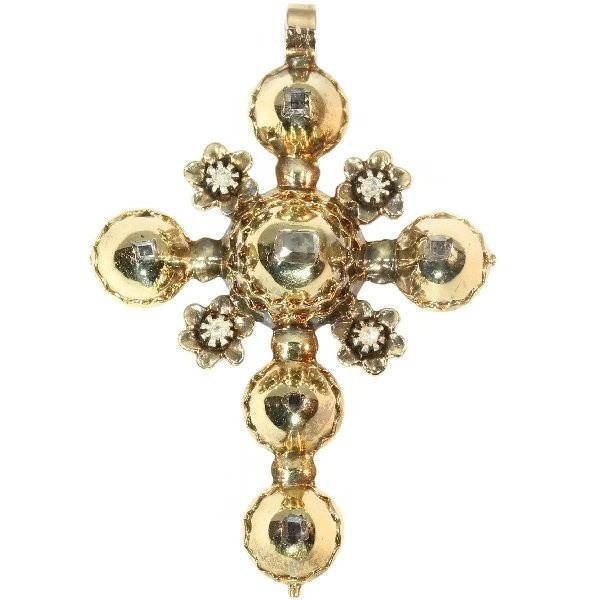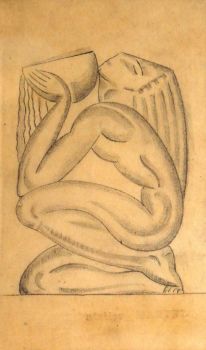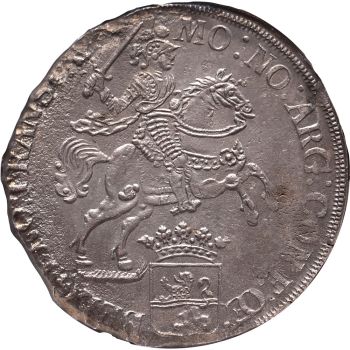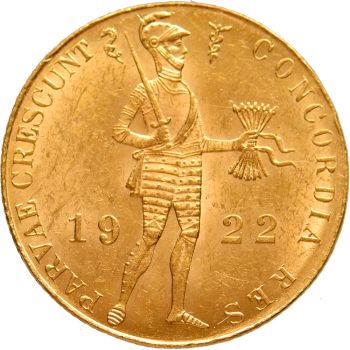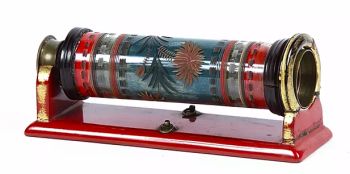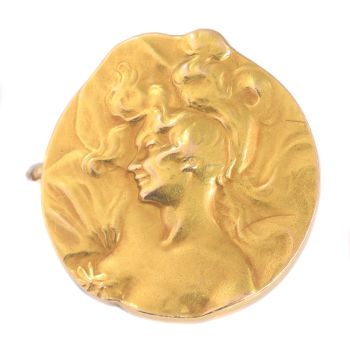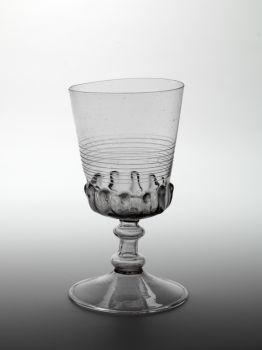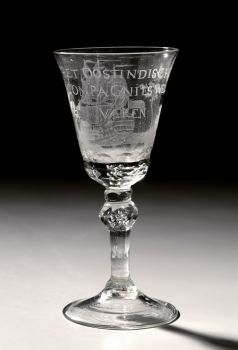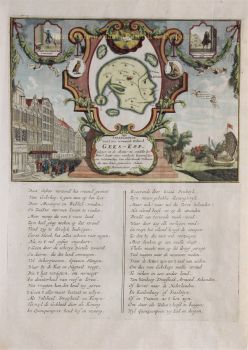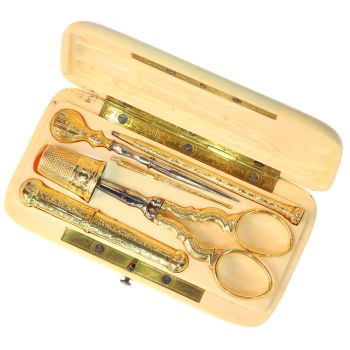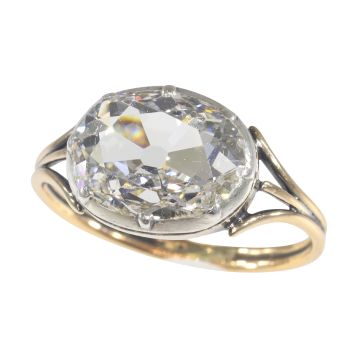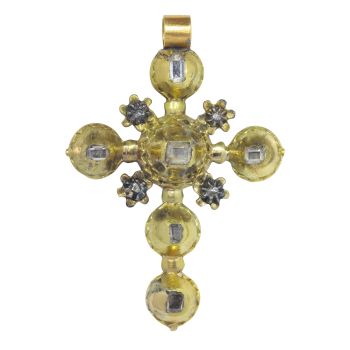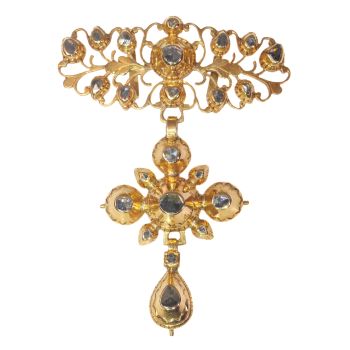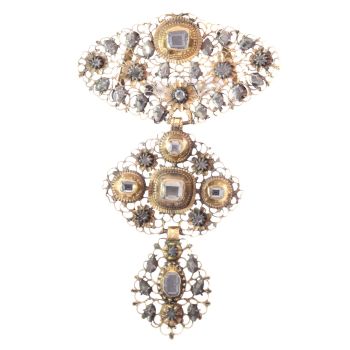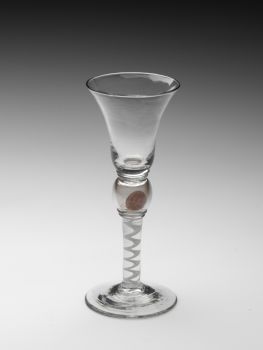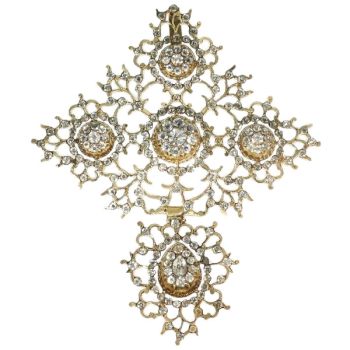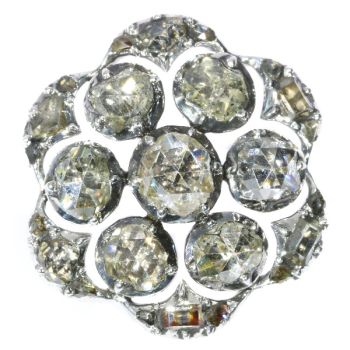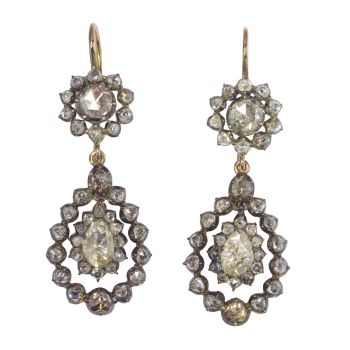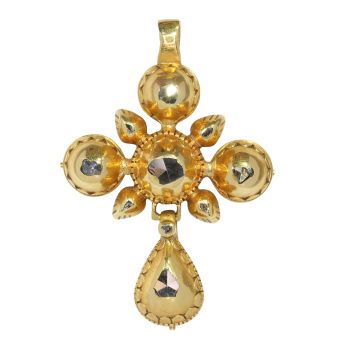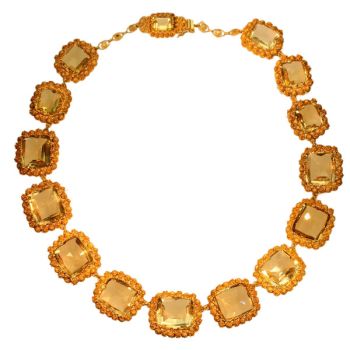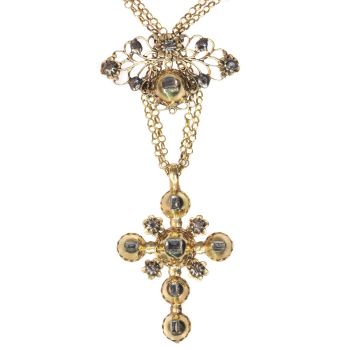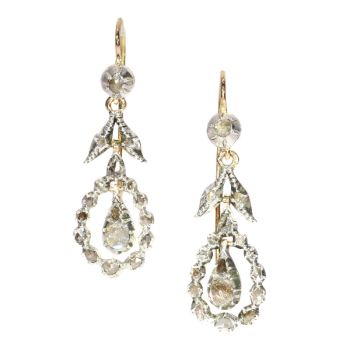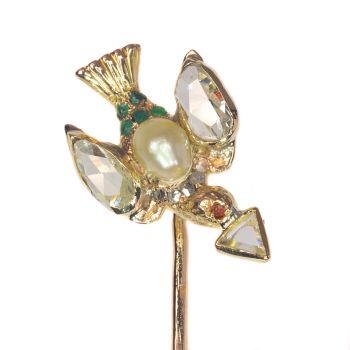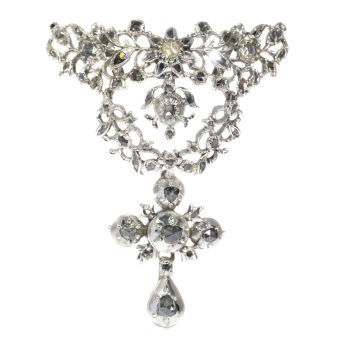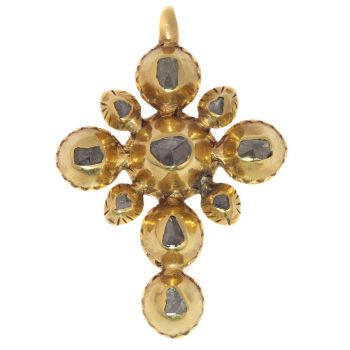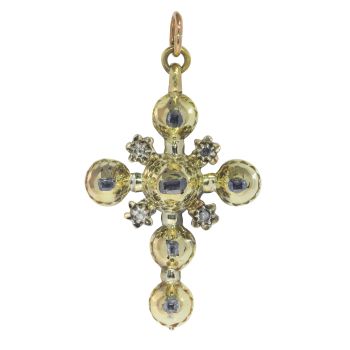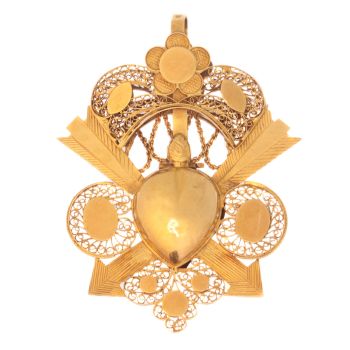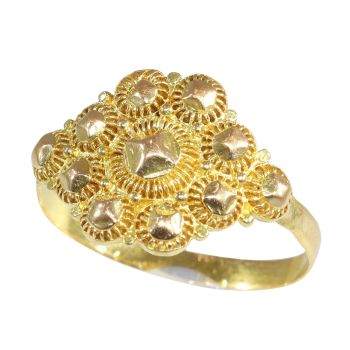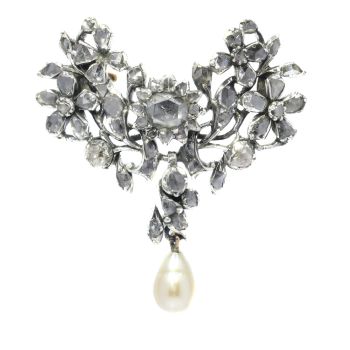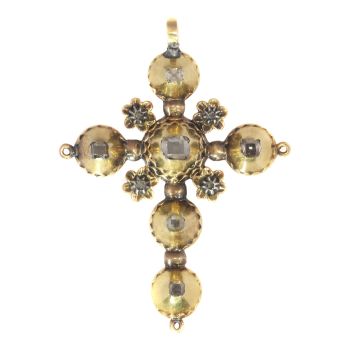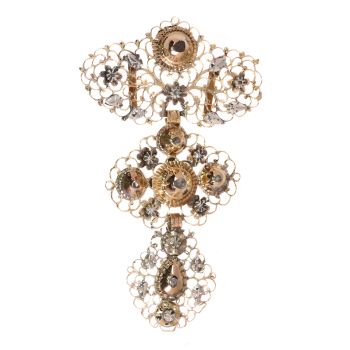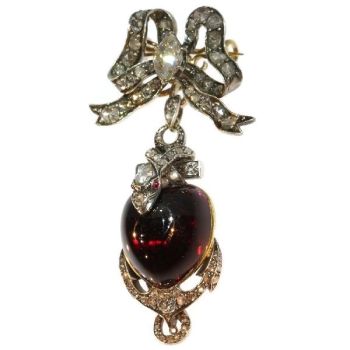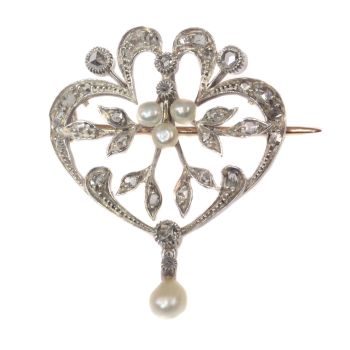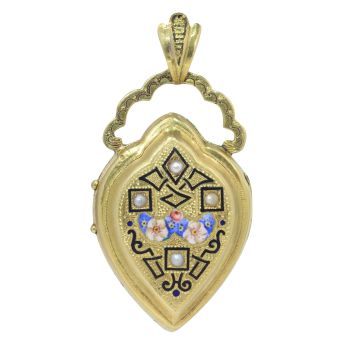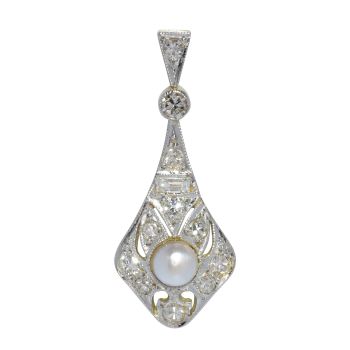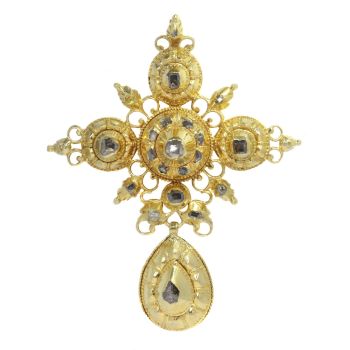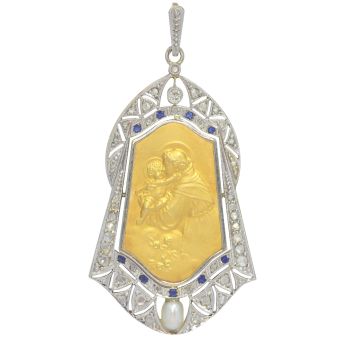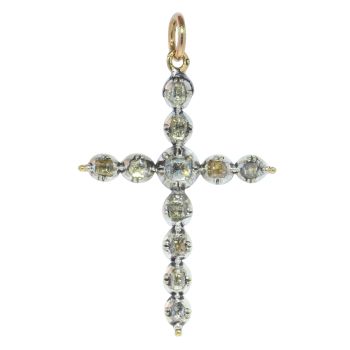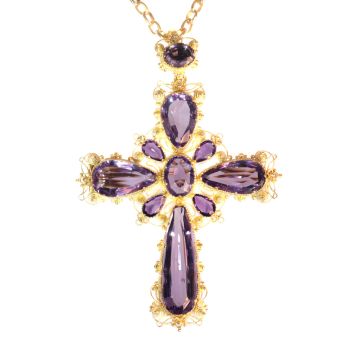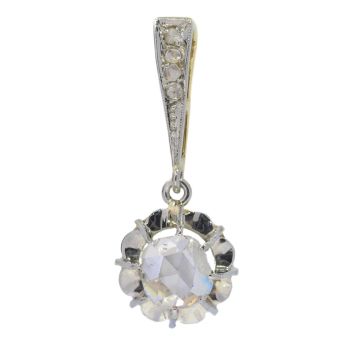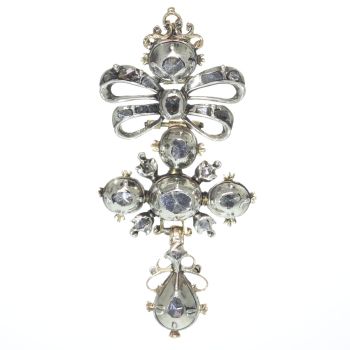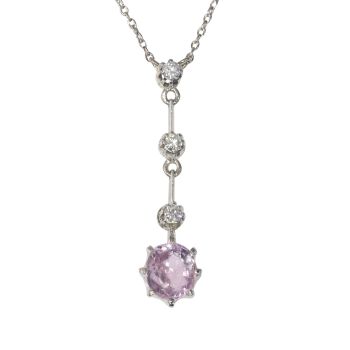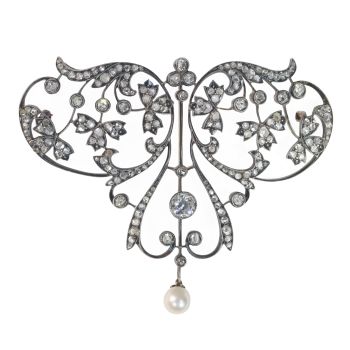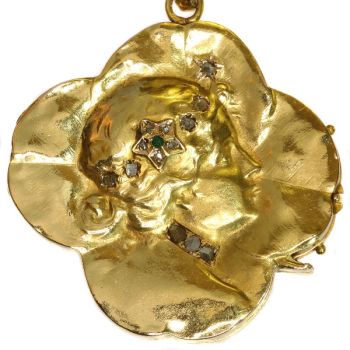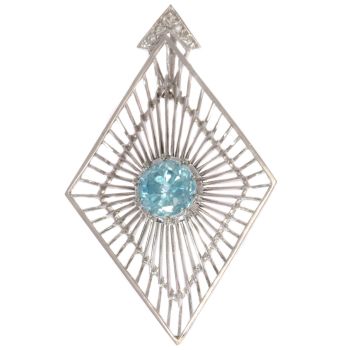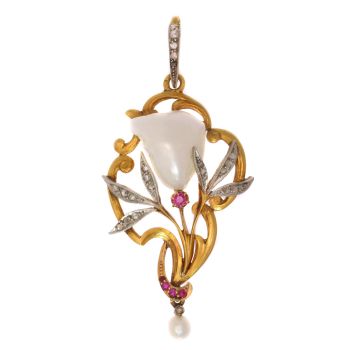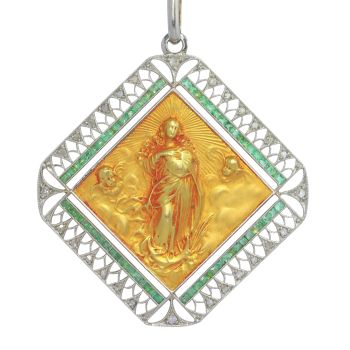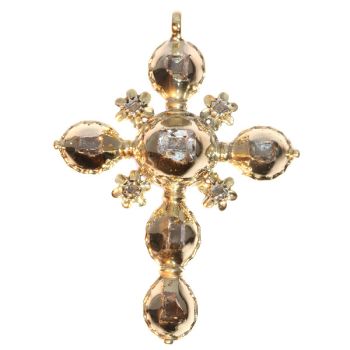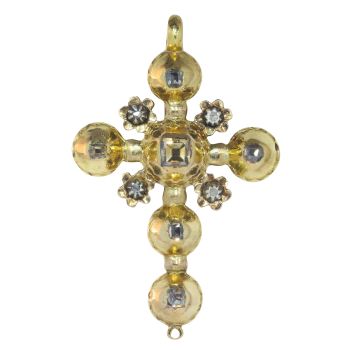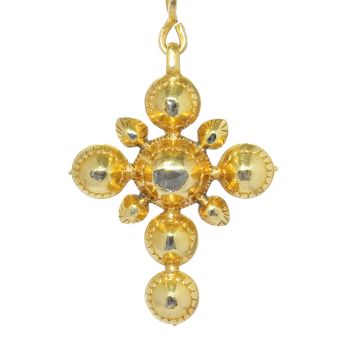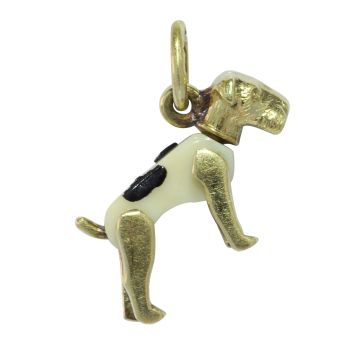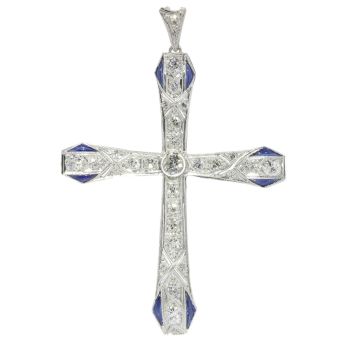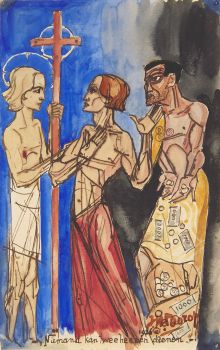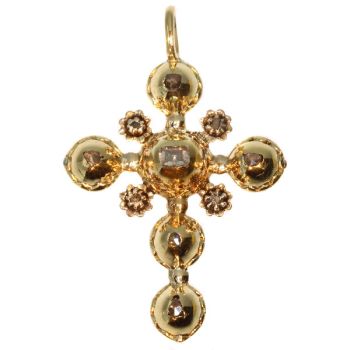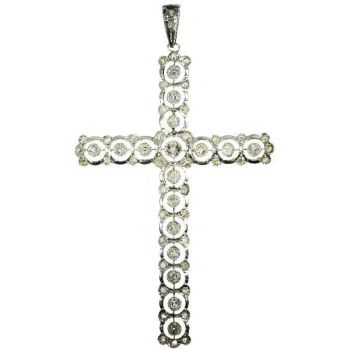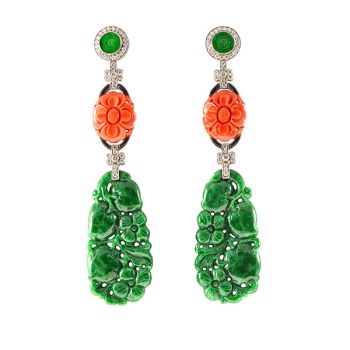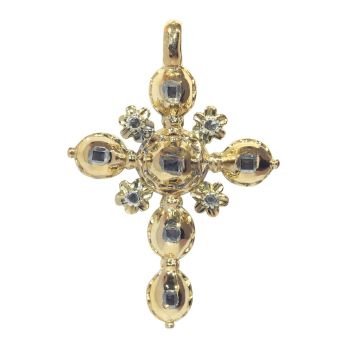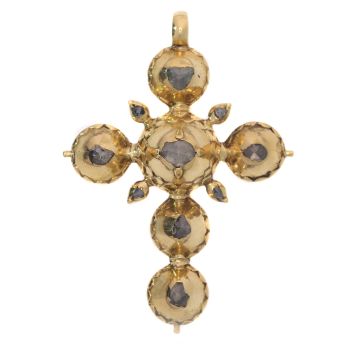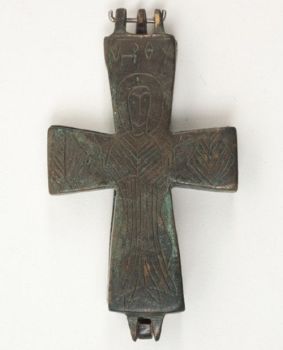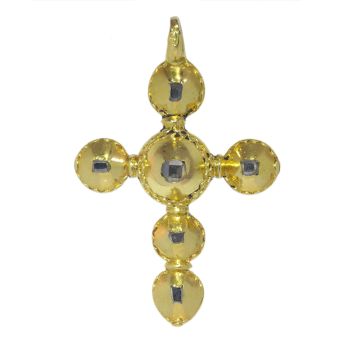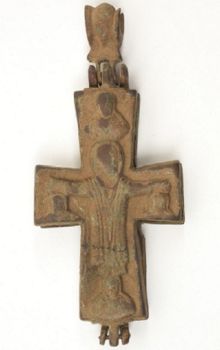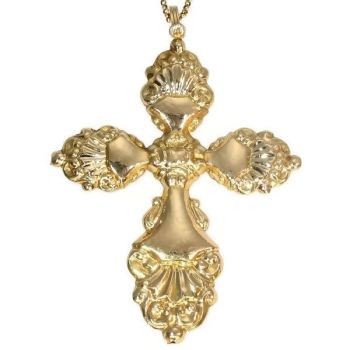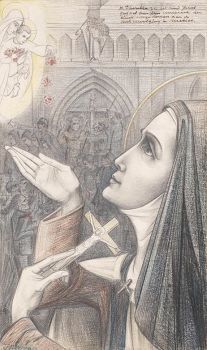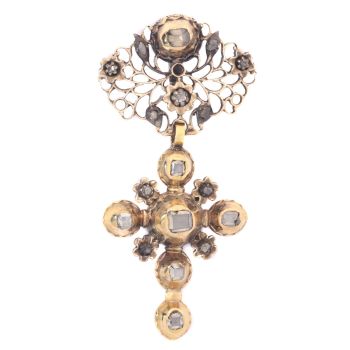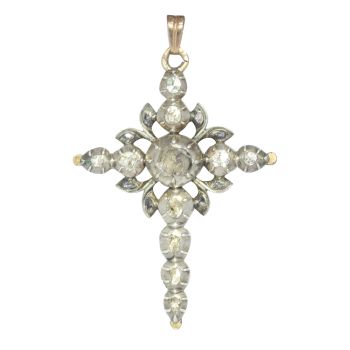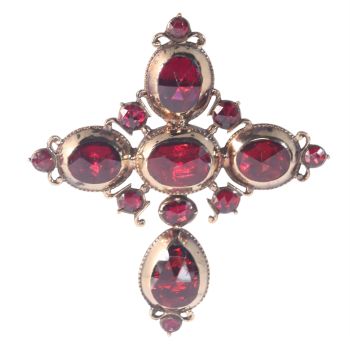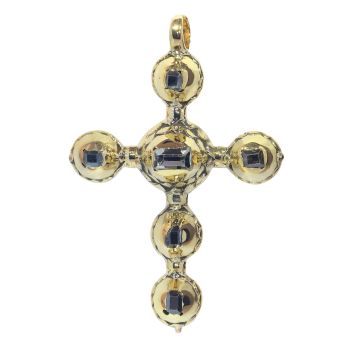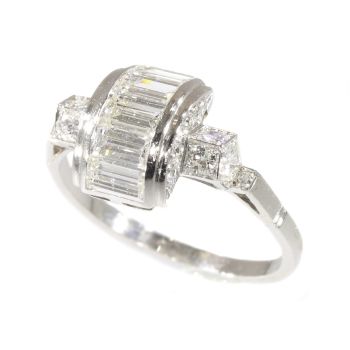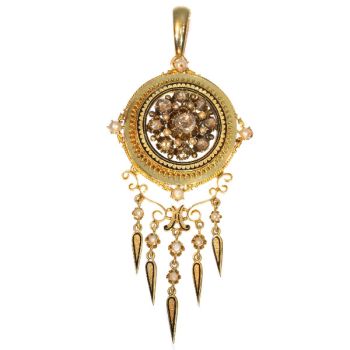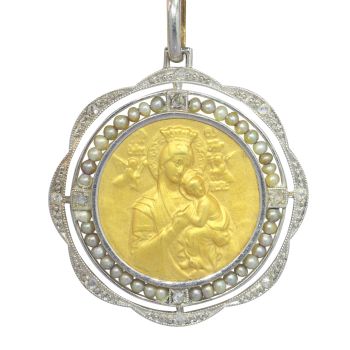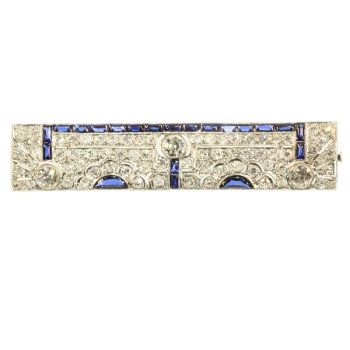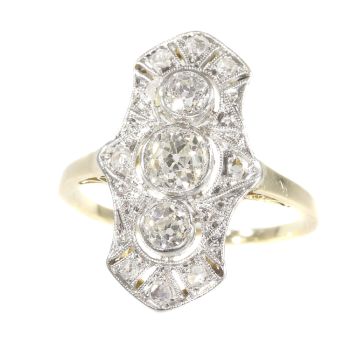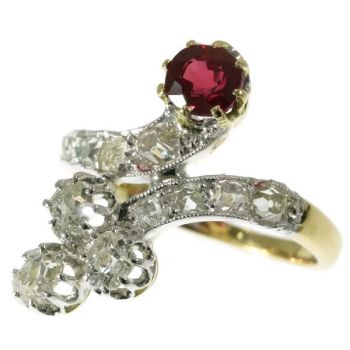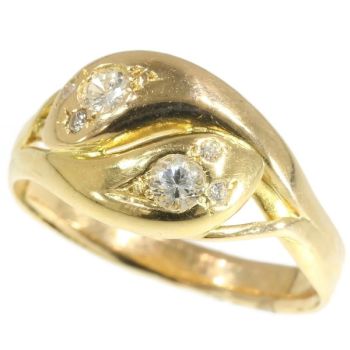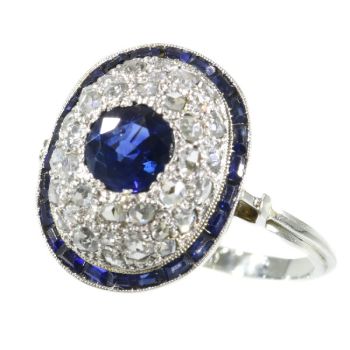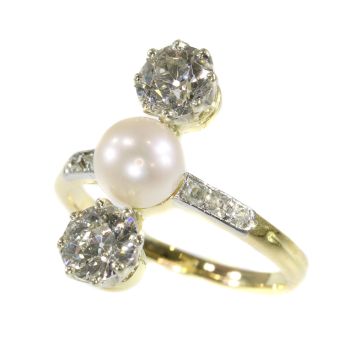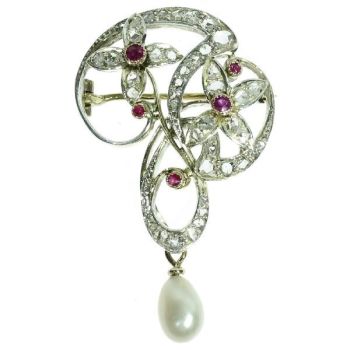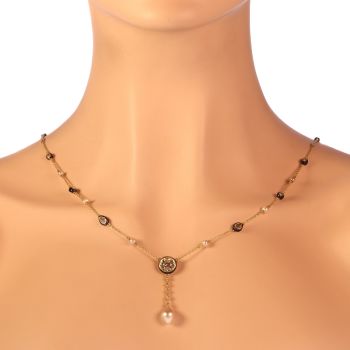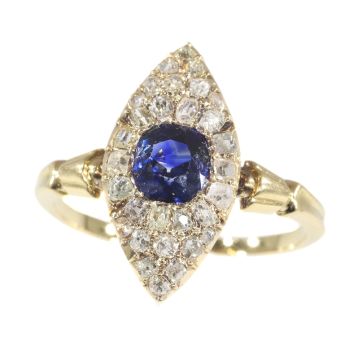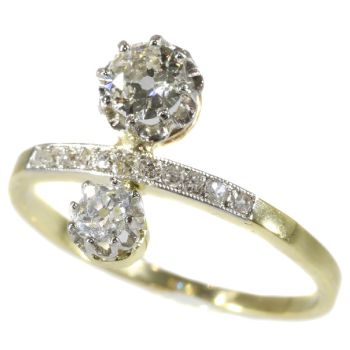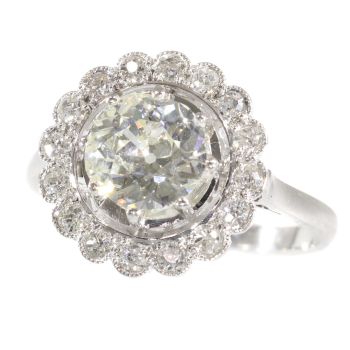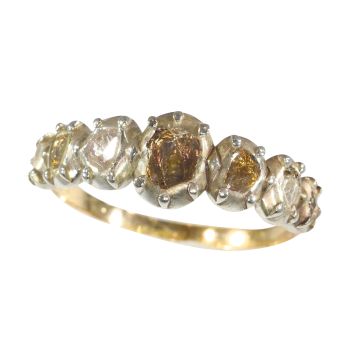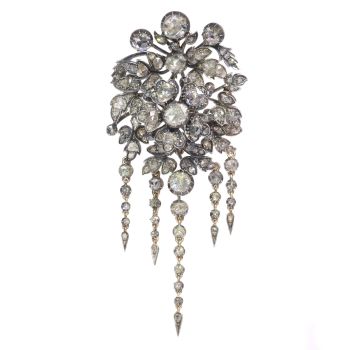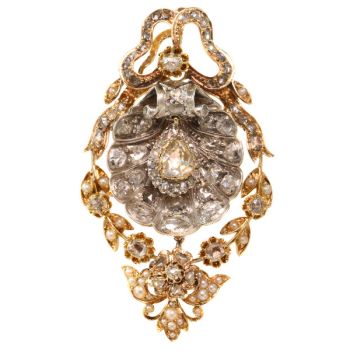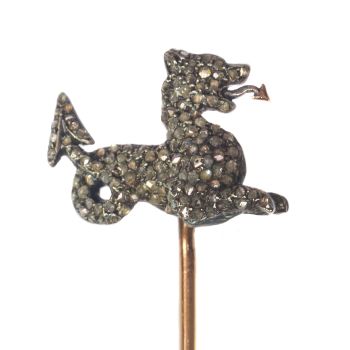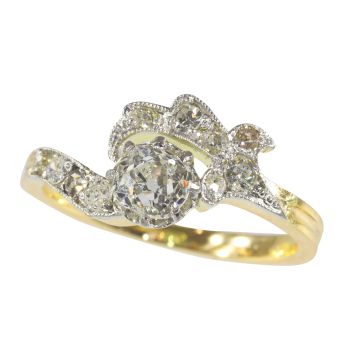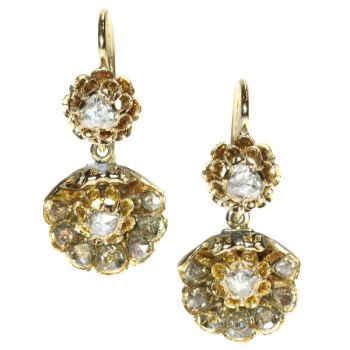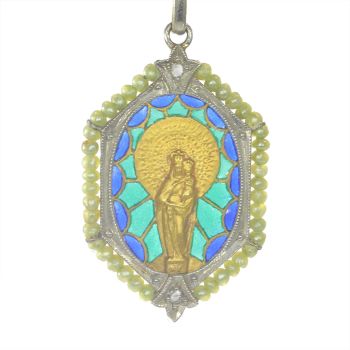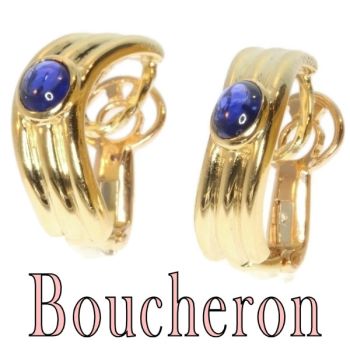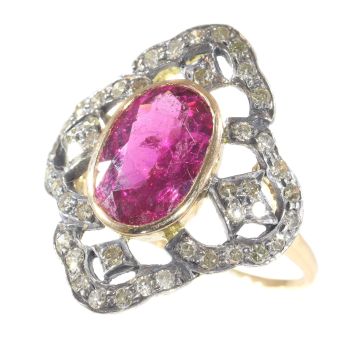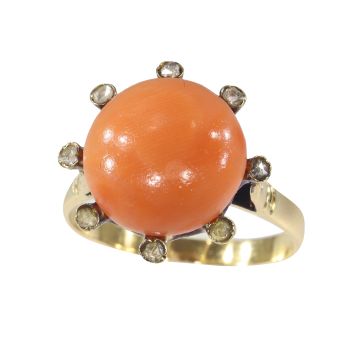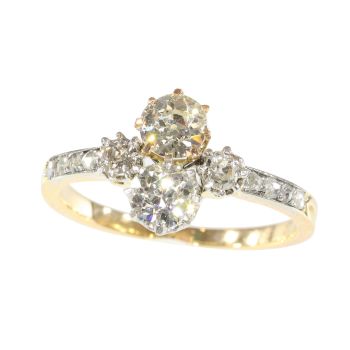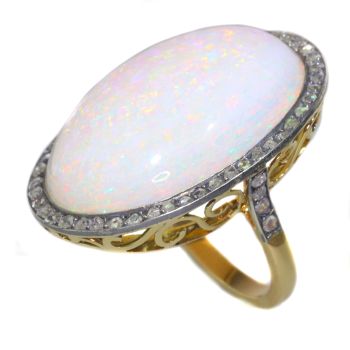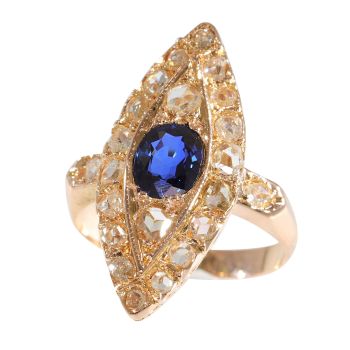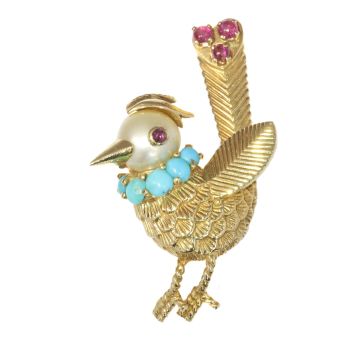Pingente de cruz em ouro belga antigo com diamantes de lapidação rosa de mesa antiga 1815
Artista Desconocido
Diamanteoro rojoOroPiedra preciosa
€ 3.450
Adin Fine Antique Jewellery
- Sobre la obra de arte
The purity of this 18K yellow gold Georgian cross pendant from around 1815 emanates from the six table cut rose cut diamonds lustring from their domed settings arranged in a Roman cross. With its four diamond-encrusted flowers sprouting between the intersections of the cross, this pendant could help anyone grow their devotional roots like roses in their soil.
Antique jewelry object group: pendant
Condition: very good condition
- (more info on our condition scale)
Country of origin: Although it does not carry any legible control marks we believe this to be of Belgian origin.
Style: Georgian - Georgian style is the name given in most English-speaking countries to the set of styles current between 1720 and 1840. It is eponymous for the first four British monarchs of the House of Hanover—George I of Great Britain, George II of GreatBritain, George III of the United Kingdom, and George IV of the United Kingdom—who reigned in continuous succession from August 1714 to June 1830.
- See also: Georgianor more info on styles
Period: ca. 1815
- (events and facts in 1815)
Source of inspiration: Christianity
Theme: Cross - The cross is one of the most ancient human symbols, and is used by many religions, such as Christianity. It is frequently a representation of the division of the world into four elements (or cardinal points), or alternately as the union of theconcepts of divinity, the vertical line, and the world, the horizontal line. (from: Wikipedia)
Material: 18K yellow gold
- (more info on precious metals)
Technique: The rose cuts are set on foil. This is a special technique that was used to bring the lustre of the diamonds to its best quality.
Diamonds:Six table cut rose cut diamonds and four rose cut diamonds and senailles. A senaille is a simplified rose cut diamond, a small diamond chip with perhaps a few polished facets. We do not have the weight of the rose cuts diamonds nor the senailles which is normal in our trade when it comes to rose cut diamonds and senailles.
Birthstones: Diamond is the birthstone (or month stone) for April.
- (more info on birthstones)
Hallmarks: No trace.
- (more info on hallmarks)
Dimensions: 4,38 cm (1,72 inch) x 2,96 cm (1,17 inch)
Weight: 6,10 gram (3,92 dwt)
Reference Nº: 14335-0018
Copyright photography: Adin, fine antique jewelry
- Sobre el artista
Puede suceder que un artista o creador sea desconocido.
Algunas obras no deben determinarse por quién está hecho o por (un grupo de) artesanos. Algunos ejemplos son estatuas de la Antigüedad, muebles, espejos o firmas que no son claras o legibles, pero también algunas obras no están firmadas en absoluto.
También puedes encontrar la siguiente descripción:
•"Atribuido a …." En su opinión, probablemente una obra del artista, al menos en parte.
•“Estudio de….” o “Taller de” En su opinión, una obra ejecutada en el estudio o taller del artista, posiblemente bajo su supervisión
•“Círculo de…” En su opinión, una obra del período del artista que muestra su influencia, estrechamente asociado con el artista pero no necesariamente su alumno.
•"Estilo de …." o “Seguidor de…”. En su opinión, una obra ejecutada al estilo del artista pero no necesariamente por un alumno; puede ser contemporáneo o casi contemporáneo
•"Manera de …." En su opinión una obra al estilo del artista pero de fecha posterior
•"Después …." En su opinión, una copia (de cualquier fecha) de una obra del artista
•“Firmado…”, “Fechado…” o “Inscrito” En su opinión, la obra ha sido firmada/fechada/inscrita por el artista. La adición de un signo de interrogación indica un elemento de duda.
•“Con firma…”, “Con fecha…”, “Con inscripción…” o “Lleva firma/fecha/inscripción” en su opinión la firma/fecha/inscripción ha sido añadida por alguien que no es el artista
¿Está interesado en comprar esta obra de arte?
Artwork details
Related artworks
Artista Desconocido
Vaso Cristallo façon de Venise1600 - 1650
Precio a consultarPeter Korf de Gidts - Antiquairs
1 - 4 / 12Artista Desconocido
Un cáliz de monedas inglés-holandés1738
Precio a consultarPeter Korf de Gidts - Antiquairs
1 - 4 / 21- 1 - 4 / 24
- 1 - 4 / 24
Artista Desconocido
Enchanting 1870s Vintage Fly Brooch: Victorian Elegance in Gold1870
€ 4.600Adin Fine Antique Jewellery
 curada por
curada porDanny Bree
1 - 4 / 24- 1 - 4 / 12

